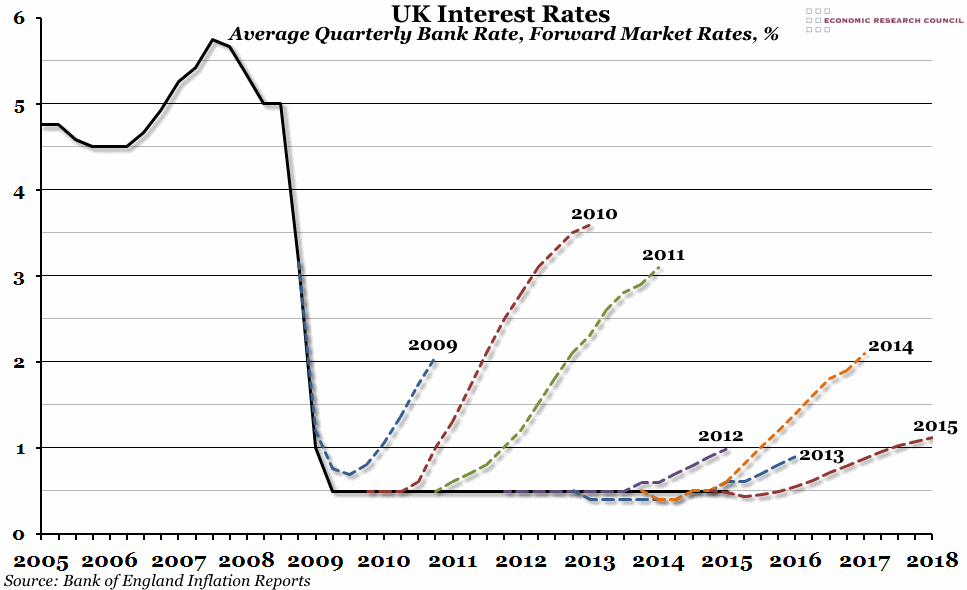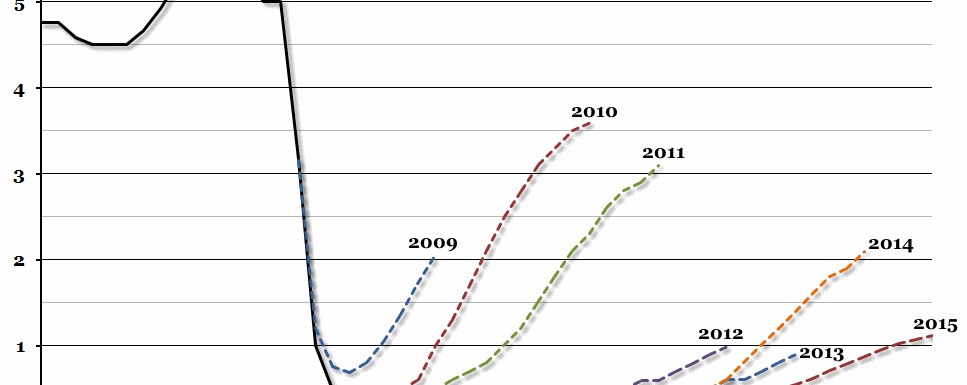
Summary
Tomorrow’s Bank of England Monetary Policy Committee meeting marks the sixth anniversary of their decision to reduce the Bank Rate to an “emergency” record low of 0.5%. Expectations outlined in last month’s Inflation Report suggest we’ll make it to the seventh anniversary before anything changes.
What does the chart show?
The black line on the chart shows the official Bank Rate (the base interest rate set by the Bank of England), averaged out over each quarter, since the beginning of 2005. Each dashed line shows the forecast for future interest rates shown in each of the last seven February Inflation Reports. These estimates are based on the overnight swap rates in the three weeks leading up to the Report.
Why is the chart interesting?
When the Bank Rate was lowered to 0.5% on 5th March 2009, it was an unexpected emergency measure to shore up the economy. The implied interest rate expectations in the Inflation Report from the month before had suggested that the rate wouldn’t drop as low as 0.5%, before returning to 2% by the end of 2010. Between 2010 and 2013, the market expectations outlined in the February Inflation Reports got progressively less optimistic about when rates would rise (although they all thought they would have by now). 2014 broke that trend with a more aggressive forecast than the previous year – the expectations were for a rate of 1% by the middle of 2015 – as strong economic growth combined with reasonable rates of inflation to create an environment where a return to normal seemed possible.
However, in the wake of near-zero inflation rates, this year’s report was more similar to that of 2013 than 2014, with the Bank Rate not forecast to reach 1% again until mid-2017.

